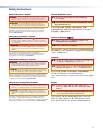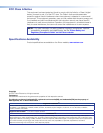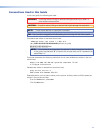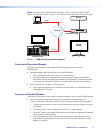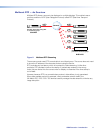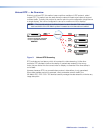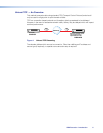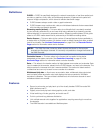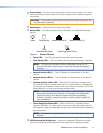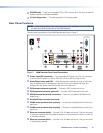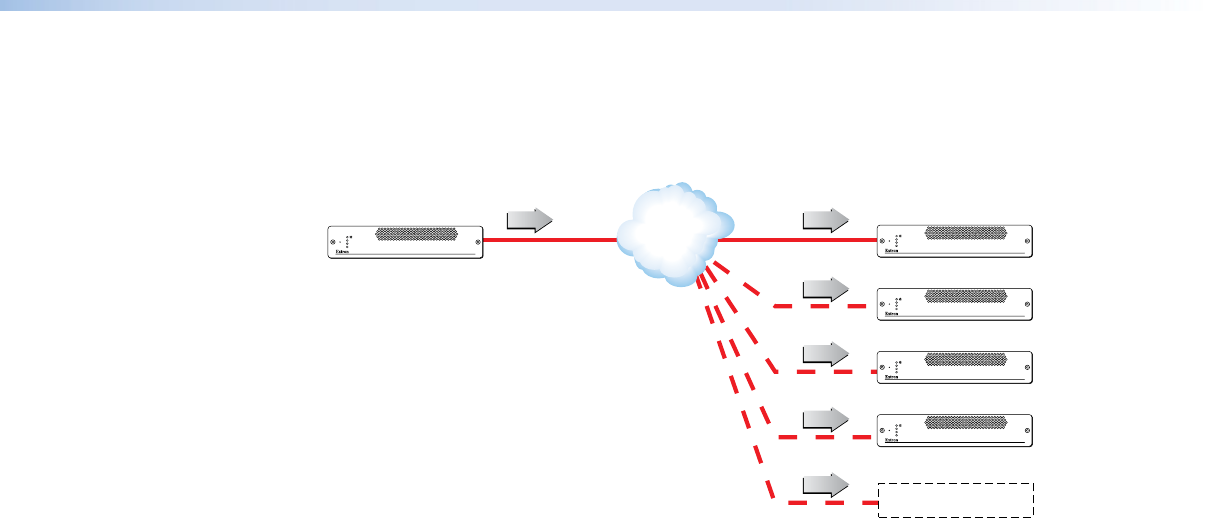
Multicast RTP — An Overview
Multicast RTP allows a source to be displayed on multiple displays. This method uses a
real‑time variation of UDP (User Datagram Protocol) called RTP (Real‑time Transport
Protocol).
SOURCE
DISPLAYS
RTP RTP
RTP
RTP
RTP
RTP
Encoder sends data using RTP
to a multicast group.
Multiple decoders can be
part of the multicast group.
Network
VN-MATRIX 225 SERIES
RGB/DVI OVER IP
LAN-1
LAN-2
STATUS
VN-MATRIX 225 SERIES
RGB/DVI OVER IP
LAN-1
LAN-2
STATUS
VN-MATRIX 225 SERIES
RGB/DVI OVER IP
LAN-1
LAN-2
STATUS
VN-MATRIX 225 SERIES
RGB/DVI OVER IP
LAN-1
LAN-2
STATUS
VN-MATRIX 225 SERIES
RGB/DVI OVER IP
LAN-1
LAN-2
STATUS
Figure 2. Multicast RTP Streaming
The source encoder uses RTP to send data to a multicast group. The source does not need
to know the IP address of the decoders that are using the source.
RTP provides very low latency which is important for video streaming. Unlike other
protocols, RTP packets include a time stamp. If packets are received in the wrong
order, they are sorted into the correct order for display or discarded if the time stamp is
out‑of‑date.
However, because RTP is a connectionless protocol, data delivery is not guaranteed.
When data packets are lost (for example, due to excessive network traffic), the
VN‑Matrix 200 / 225 / 300 / 325 devices carefully manage the data stream to minimize any
image disruption.
VNM Recorder • Introduction 4



